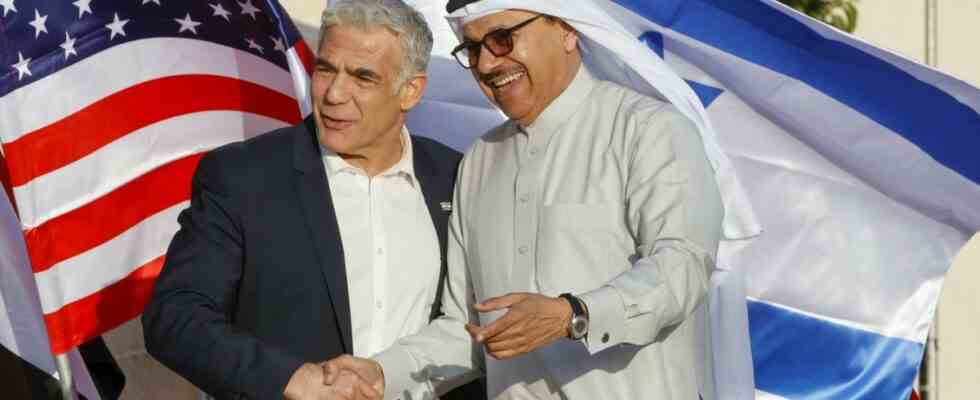More symbolism is hardly possible: in Sde Boker, deep in the Negev desert, an illustrious group will meet on Sunday and Monday: four foreign ministers from Arab countries – from the United Arab Emirates, Bahrain, Morocco and Egypt – traveled to Israel, to confer with the local Secretary of State, Jair Lapid, and America’s patron saint, Antony Blinken. There has never been anything like it, and for romantics at least, it seems like the fulfillment of a dream shared by Israel’s founder, David Ben-Gurion. According to the 1948 Declaration of Independence, Israel would stretch out “a hand of peace” to all countries in the Middle East.
Sde Boker was Ben-Gurion’s abode in the desert. Here he lived in the kibbutz. Here he is buried. And from here the message should go out that Israel is no longer just surrounded by enemies. It’s perfectly staged. However, it is by no means the only message that is supposed to come from this “Negev summit”.
Of course, at this meeting, which was arranged at short notice, it is important to once again strengthen the Abraham Agreements concluded in the summer of 2020 and to breathe new life into the peace treaties concluded earlier with Egypt and Jordan. But the intended strengthening is certainly not only aimed inwards, but even first and foremost outwards – in the direction of Iran.
Iran as a common threat
The threat posed by the Shia regime in Tehran is what brings Israel and its Sunni Arab neighbors in the Negev together. Here they want to reaffirm their common opposition to the new nuclear agreement with Iran that the US government is striving for and to put pressure on US Secretary of State Blinken with a rejection front that is as closed as possible.
These states are not only suspicious of the new version of the nuclear agreement that Donald Trump canceled in 2018 – they consider it an existential threat. After all, the lifting of sanctions after the signing of a contract will flush billions into Tehran’s coffers, and this money will certainly not only be used for charitable and civilian purposes. Iran will thus continue to pursue its regional claim to power and, on top of that, militarily arm its occupants in Yemen or Lebanon.
Iranian drones and missiles threaten Abu Dhabi as well as Tel Aviv. The other foreign ministers will therefore not only want to know more about the status of the negotiations from the Washington envoy Blinken. They will also demand extensive security guarantees. Despite all the symbolism, the meeting in the Negev is not a peace conference, but rather a kind of war council.
exclusion of the Palestinians
The fact that it is not about Middle East peace agreements is shown by something else: a blank space. As with the Abraham Accords, the Palestinians are kept on the sidelines in Sde Boker. They are not represented, they are not on the agenda. However, another meeting held parallel to the Negev conference in Ramallah shows that they and the core conflict in the Middle East have not disappeared with them. There, Palestinian President Mahmoud Abbas meets Jordanian King Abdullah.
The Jordanians have made it their task to bring the Palestinians out of their increasing isolation – and Israel’s government would be well advised not to boycott them in the process. Because only when a compromise is found with the Palestinians can there be peace in the Middle East. And only then will there be a really united and strong front against Iran – together with the powerful Saudi Arabia, which still makes its normalization of relations with Israel dependent on the implementation of the two-state solution.

